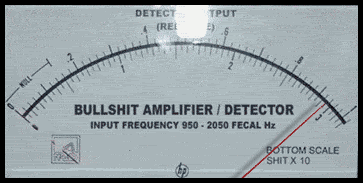Glongpre said:
Hawki said:
2001's overall theme is "evolution/journey of mankind"
That's what I thought too. I was kind of disappointed that Dave didn't become a more evolved human. It doesn't make sense to me that Dave was consumed by the aliens and not just killed. If the goal of the monoliths was to just create intelligent life, then what was the point of the humans, you know?
Unless achieving peace and harmony with each other and the galaxy is the next evolutionary step?
Um...what?
Okay, one thing that's generally a given is that Dave does become a more evolved human as the Star Child. Confining this to the film, the monoliths appear in each act. First act, they give apes intelligence. Second act, we see how far mankind has come technologically, but TMA-01 is on the moon, the astronauts mill around it (mimicking the apes in act 1), and a message is sent to Jupiter/TMA-02. Act 3, we see humans as far away from Earth as you can get, in an even more sterile, lifeless environment, where the 'old intelligence' (humans) overcomes the 'new intelligence' (HAL). Act 4, Dave is reborn, signifying the next step in human evolution. This is just my interpretation of course - there is the idea in the film that Dave's rebirth does signal a needed change in humanity, that a contrast exists between act 2/3 and 1, in that it shows humanity being separated from nature, and lacking in emotion. I'm wary of this myself though, as you're not going to get many plants in space, and Kubrick has a reputation for 'cold' camerawork, with impersonable characters regardless of the subject matter.
So yes, confining the monoliths just to film 2001, their goals are left ambiguous, and if anything, I'd say the film hammers it in, as Dave reaches out to the monolith in his last moments as an old man, but can't reach it physically, likely symbolizing being unable to comprehend it mentally. But, to answer your question in the most basic of terms:
a) Dave isn't consumed by TMA-02 per se, but rather transformed. The Star Child is meant to be a progression of mankind, not a regression.
b) 2001 (movie version) leaves the monoliths' motivations unclear. The novel does explain them in detail, but it's pretty much established that in the film, it was intended to raise more questions than answers.
KissingSunlight said:
Does it seem like that Sci-Fi fans are way too critical of new science fiction IP's and way too forgiving of remakes and sequels of established Sci-Fi IP's?
Pretty much the opposite I've found. Glongpre explains it well, that Star Trek and Star Wars have got a hammering, whereas newer films, while they don't escape critique completely, it hasn't reached the levels of franchise films. That said, I suppose I'd attribute that more to fandom than genre. For instance, there's far more buzz around Rogue One/Guardians of the Galaxy II/Star Trek XIV, than upcoming sci-fi films like Passengers, The Space Between Us, or Arrival.

